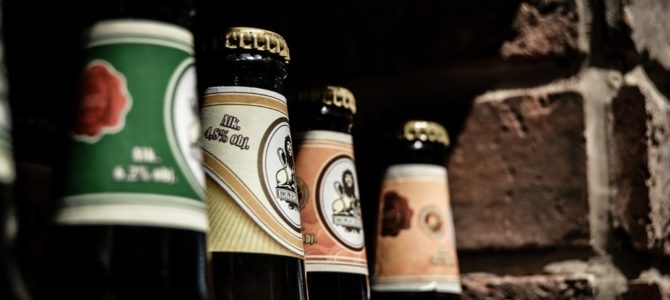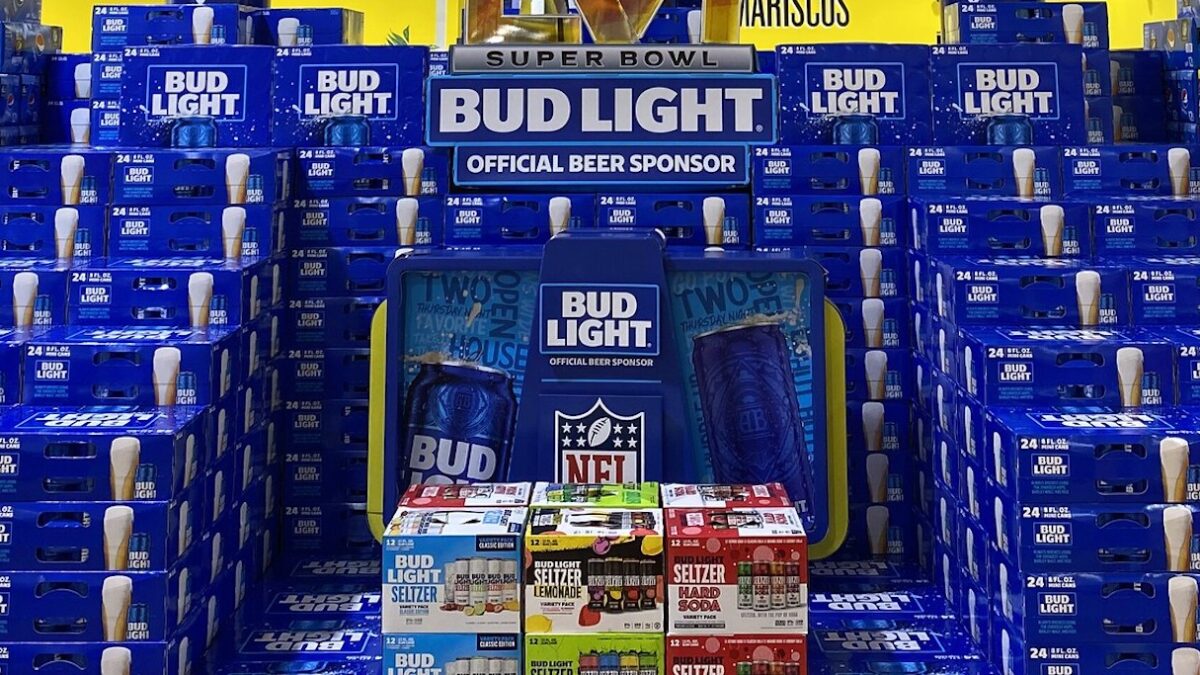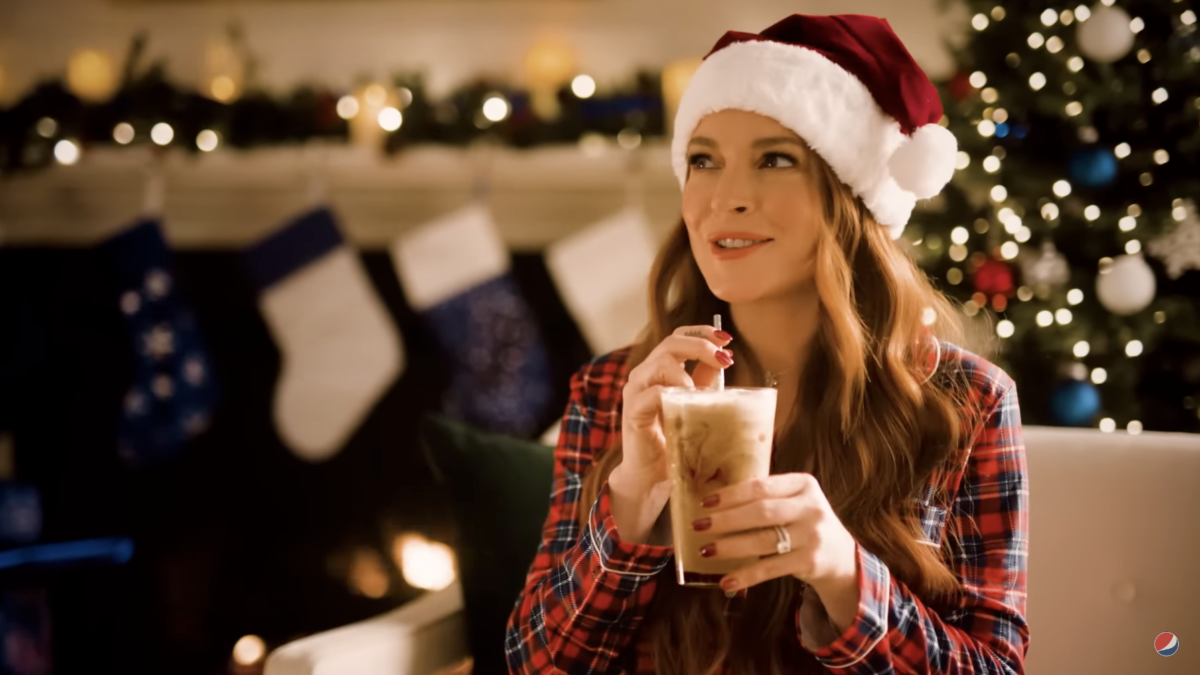
This month is FeBREWary in the state of Maryland and various other American locales. February 1 also marked the 39th anniversary of a federal law allowing homebrewing, which contributed to the eventual explosion of craft breweries. The craft beer industry — seen especially through its labeling and advertising — represents much of what is best in America, especially localist industry and pride in tradition and history.
As a native Virginian, I have many great libation options in the Old Dominion worth celebrating. Yet as a husband and father of three, I’m also increasingly frustrated with certain segments of the beer industry that reflect the industry’s pandering to the self-indulgent masculine libido. As much as we celebrate the incredible growth of local craft breweries, we should remember that the same industry often markets a product with labels and advertising gimmicks that degrade women and sex.
Celebrating the Craft Beer Industry
As recently reported by citylab.com, the rise the craft beer industry is a remarkable story of American entrepreneurship. While a small cadre of companies increasingly dominate many industries, small craft brewers have thrived. The numbers of breweries and workers in those breweries have grown at tremendous rates in the last 15 years. Americans are surprisingly willing to spend more money on higher-quality beer of remarkably diverse flavors, often to support local industries.
Regardless of what part of the country you are in — the North Carolina piedmont, the Great Lakes region, or the central valley of California — you can find delicious local beers. Moreover, since it’s commonly consumed socially, beer facilitates community and pride in one’s native region. There are so many good beers in the Commonwealth of Virginia I rarely bother to buy any “foreign” libation.
Craft breweries also seem particularly attentive to honoring tradition and history in their naming and labeling. Port City Brewery out of Alexandria, Virginia, honors the city’s historic role as an important mid-atlantic harbor. Three Notch’d Brewing Company in Charlottesville, Virginia, named after a local road, offers one beer honoring Confederate war hero (and later American consul to Hong Kong) John S. Mosby. Old Bust Head Brewing Company in Vint Hill, Virginia is named after a rural crossroads in Fauquier County, Virginia. All are simply fantastic.
Others engage in all manner of clever advertising. There’s a “Goatboy” beer by Southern Tier Brewing Company. You can also drink Lost Rhino’s “Face Plant.” My personal favorite is “He’Brew” by Schmaltz, a New York-based brewer.
Others focus on maintaining a simple, yet easily recognizable brand. Bell’s Beer from Kalamazoo, Michigan, and Brooklyn Brewery, of Brooklyn, New York, are uncomplicated in their designs, while offering some of the most delicious and refreshing brews on the market. The focus of all these breweries is straightforward: market a superior product that is well-respected by beer connoisseurs and novices across the nation.
One Craft Brewery That Lost Its Soul
The same used to be the case with Dominion Brewing Company, which brewed its beer in Ashburn, Virginia. I was proud of their beers, particularly their flagship “Dominion Ale,” brewed in the English style. It even had an iconic image of a white-tailed buck on the label, a testament to one of Virginia’s most ubiquitous, if also annoying, fauna.
Several years ago, Dominion moved their operation to Delaware. In that process, they also revamped their suite of beers, changing the names and images on the labels, as well. For some, the names speak for themselves: “Double D IPA,” and “Morning Glory Espresso Stout” are pretty obvious in their sexual references. Dominion’s website also shows the fairly explicit imagery — all reminiscent of World War II-era pin-up girls — found on their labels.
The labels, even if cartoons, represent women as objects to be valued primarily for the pleasure they provide men, and revel in vulgarity that makes me embarrassed to bring these brews home to my fridge where my wife and kids can see them. I respect women and feel shame at seeing them crudely treated in effigy.
I strive to treat my wife and daughters as beautiful human beings who deserve to be cherished for far more than their bodies and sexual potential. While sexuality can be a way of expressing love and respect, the type of vulgar attention and treatment depicted on these bottles is not the kind my wife nor daughters deserve, nor should be taught to expect. This trend towards degrading depictions of women runs far deeper than a single Delaware-based brewer.
It’s Misogyny Run Rampant
Some may know of Bud Light’s “Up For Whatever” ad campaign, which in 2015 elicited controversy for one of its slogans: “The perfect beer for removing ‘no’ from your vocabulary for the night.” Some called the phrase a little “rapey.” This is just the tip of the iceberg.
There’s Pig Minds’ “PD (Panty Dropper),” Clown Shoes’ “Tramp Stamp,” Stark Brewing’s “Mt. U Golden Cream Ale” (another WWII-era pin-up), Middle Ages’ “Double Wench,” and “Little Sumpin’” and “Aunty Sally,” both by Lagunitas. In each case, sexually suggestive (or provocative) titles are united with sexual imagery with varying degrees of explicitness. At times, it’s borderline pornographic.
This is all supposed to be in good fun, but it plays into a misogynist “lad culture” with the implication that it’s okay to get a woman tipsy in order to get what you want from her. Various beer companies play along, with a “wink, wink, nudge, nudge, say no more, say no more” attitude. Women deserve much, much more than this.
This also works against beer companies’ attempts to project themselves as offering a superb, palatably complex product, of the same quality and refinement as wine. Yet a beer bottle sporting a pinup girl and eye-drawing cleavage, while simultaneously claiming to contain a liquid possessing “guava, mango and tropical fruit aromas as a result of dry hopping with Citra, Zythos and Crystal hops” and “brewed with light toasted malt and Bravo bittering hops,” is all a bit ridiculous. Are we supposed to be gentlemen looking for notes of “crystal hops” and “light toasted malt,” or sophomoric frat boys bragging about a weekend “conquest” of a woman who means no more to us than a notch on our belts?
Craft Breweries Can Do Better
My uncle, also a native Virginian, tells me that only three decades ago folks who travelled to Colorado would often return with their luggage packed full of a local beer one had great difficulty acquiring in the Old Dominion. That “holy grail” of beers? Coors. Obviously, we’ve come a long way.
There’s a lot to love about the feel-good story of America’s resurgent craft brew industry — employing larger numbers of Americans, promoting local industries, and embracing local history and tradition. Breweries that further these missions are worthy of our support.
Yet some segments of the American beer industry have participated in a very different kind of American tradition we would be better off without. Selling products with names and images that are either suggestively or blatantly misogynist, depict women solely as objects of men’s pleasure, or borderline pornographic works against the better angels of our nature.
Some beer companies need to decide whether their product is about developing a taste for the finer things in life or an aid to preying on women, which heartbreaking essays have depicted as real life across college campuses and bars every weekend. Furthermore, if beer companies want to avoid reinforcing stereotypes of beer drinking as the former, they would do well to shed these foolish advertising ideas and redirect those energies to one of America’s finest traditions — brewing good beer. Beer companies can elevate their craft and aesthetic, and they should.
And they can lay off the fruit-flavored beer while they’re at it. That stuff is disgusting.









